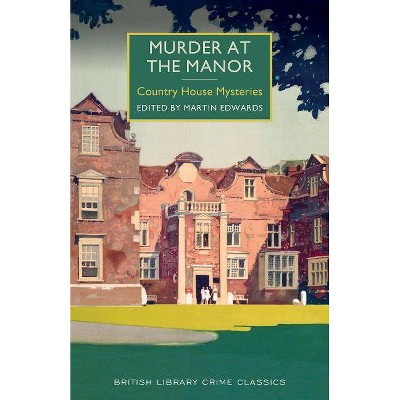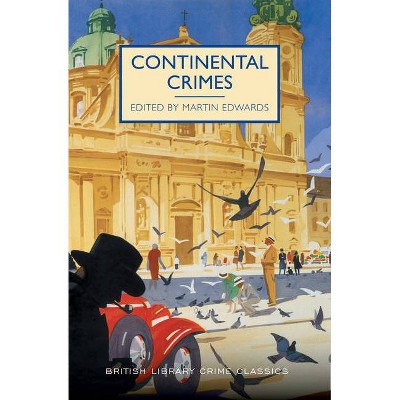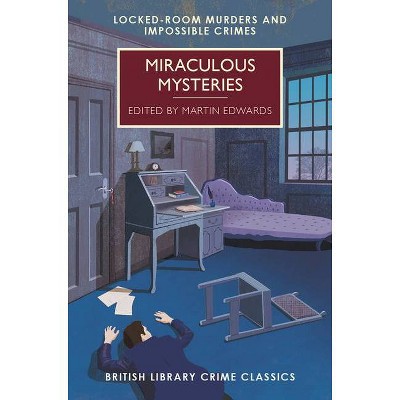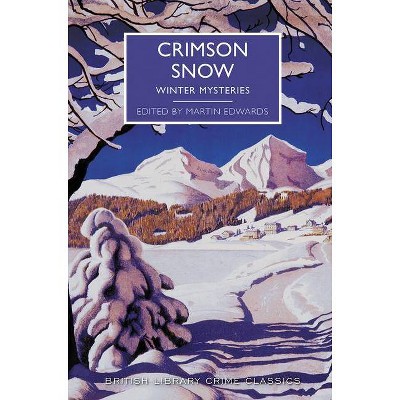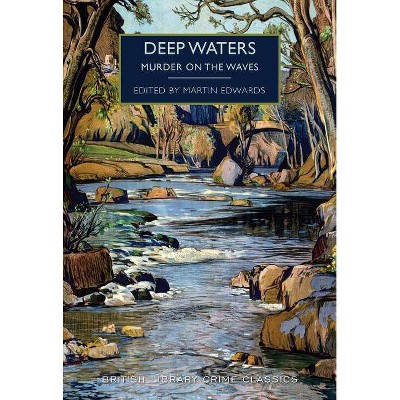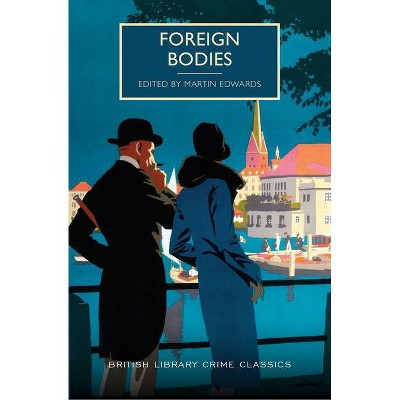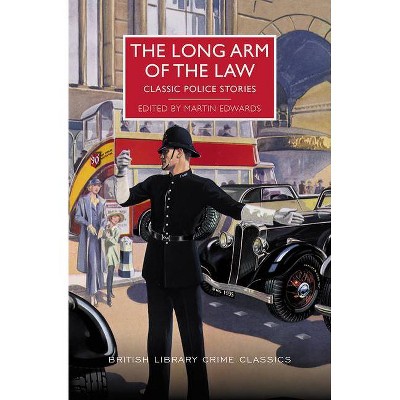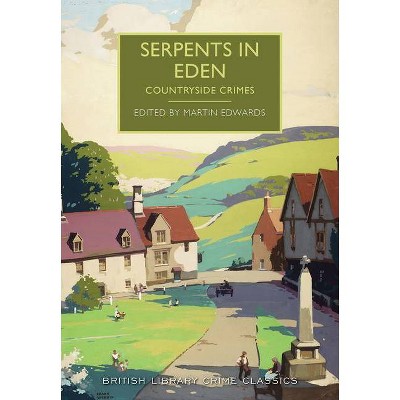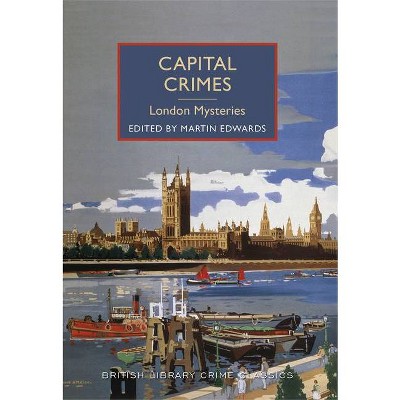The Story of Classic Crime in 100 Books - by Martin Edwards (Paperback)
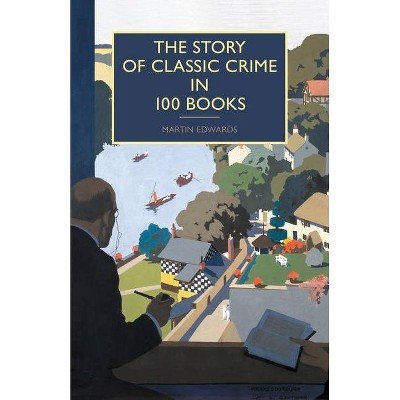
Similar Products
Products of same category from the store
AllProduct info
<p/><br></br><p><b> About the Book </b></p></br></br>The main aim of detective stories is to entertain, but the best cast a light on human behaviour, and display both literary ambition and accomplishment. Even unpretentious detective stories, written for unashamedly commercial reasons, can give us clues to the past, and give us insight into a long-vanished world that, for all its imperfections, continues to fascinate. This book, written by award-winning crime writer and president of the Detection Club, Martin Edwards, serves as a companion to the British Library's internationally acclaimed series of Crime Classics. Long-forgotten stories republished in the series have won a devoted new readership, with several titles entering the bestseller charts and sales outstripping those of highly acclaimed contemporary thrillers.<p/><br></br><p><b> Book Synopsis </b></p></br></br><p><b>2018 Macavity Award winner for Best Nonfiction</b></p> <p><b>2018 Anthony Award nominee for Best Critical/Nonfiction Book</b></p> <p>This book tells the story of crime fiction published during the first half of the twentieth century. The diversity of this much-loved genre is breathtaking, and so much greater than many critics have suggested. To illustrate this, the leading expert on classic crime discusses one hundred books ranging from <i>The Hound of the Baskervilles</i> to <i>Strangers on a Train</i> which highlight the entertaining plots, the literary achievements, and the social significance of vintage crime fiction. This book serves as a companion to the acclaimed British Library Crime Classics series but it tells a very diverse story. It presents the development of crime fiction-from Sherlock Holmes to the end of the golden age-in an accessible, informative and engaging style.</p> <p>Readers who enjoy classic crime will make fascinating discoveries and learn about forgotten gems as well as bestselling authors. Even the most widely read connoisseurs will find books (and trivia) with which they are unfamiliar-as well as unexpected choices to debate. Classic crime is a richly varied and deeply pleasurable genre that is enjoying a world-wide renaissance as dozens of neglected novels and stories are resurrected for modern readers to enjoy. The overriding aim of this book is to provide a launch point that enables readers to embark on their own voyages of discovery.</p><p/><br></br><p><b> Review Quotes </b></p></br></br><br>An 'unashamedly idiosyncratic' checklist from prolific novelist/editor/genre historian Edwards (<i>The Dungeon House</i>, 2015, etc.).As readers will expect from the editor of the British Library Crime Classics series, the lion's share of these 100 brief program notes, which read like a collection of prefaces, concern mystery novels published in England between the world wars. Even the most quarrelsome readers, their blood pressures duly raised, will take comfort in comprehensive indexes that list (though they give no page references for) titles and authors that didn't make the top 100.-- "<b><i>Kirkus Reviews</i></b>"<br><br>Edwards follows his Edgar-winning <i>The Golden Age of Murder</i> (2015) with another study of primarily classical detective fiction, this one presented as a companion to the British Library Crime Classics series, also published in the US by Poisoned Pen...Most of the subject books are covered in a couple of pages, including plot summary, critical assessment, biographical notes and other sidelights, and historical significance. Edwards is an excellent guide as always, presenting new insight and information even on authors and books I thought I knew well.-- "<b><i>Mystery Scene Magazine</i></b>"<br><br>The book is engagingly written, allowing for the reader to maybe not have much knowledge of the classic crime stories, especially the older ones, but it is quite inspiring and you can see Martin Edwards' passion shining through in the text. This is definitely a great addition to the collection and would make a great starting point for any of you who don't know the best place to start.--Matthew Barnes "<b><i>Carpe Libris</i></b>"<br><br>Written as a companion to the British Library's Crime Classics series of reprints, this descriptive critical catalogue of 100 crime and mystery novels (mostly British) published in the first half of the 20th century is irresistible for aficionados and a reliable reading list for newcomers. Edwards' picks, most published during detective fiction's golden age between the two world wars, range chronologically from Doyle's <i>The Hound of the Baskervilles</i> (1902) to Julian Symons's <i>The 31st of February</i> (1950) and include, in addition to many of the usual suspects, a few outliers sure to enliven debates among diehard fans. He groups his selections into 24 chapters that cover numerous aspects of the literature - the great detectives, the fair-play mystery (epitomized by Ronald Knox's <i>The Body in the Silo</i>), the miraculous or locked-room mystery (a specialty of John Dickson Carr), country house and manor murder mysteries, and so on - and whose ordering shows classic tropes giving way to newer approaches more resonant with modern times. A crime novelist in his own right, Edwards (<i>The Golden Age of Murder</i>) brings a specialist's discerning eye to discussions of each book's significance, and without giving away key plot points. This is an exemplary reference book sure to lead readers to gems of mystery and detective fiction. <b>(Starred review)</b>-- "<b><i>Publishers Weekly</i></b>"<br>
Price History
Price Archive shows prices from various stores, lets you see history and find the cheapest. There is no actual sale on the website. For all support, inquiry and suggestion messagescommunication@pricearchive.us
